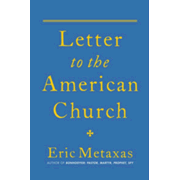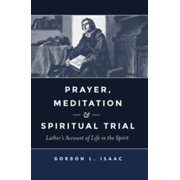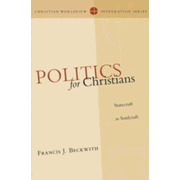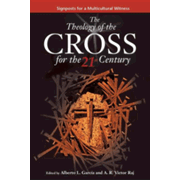THE Ninth Sunday after Pentecost brings us along a path made from a constructed collection of our Lord’s parables. Judiciously arranging the order of conversation given in biblical script, the Holy Spirit thus provided us with lively character. Our Lord appears to have progressively illustrated the dramatic growth and value that belongs to the kingdom of heaven...
Another parable he (Jesus) put before them, saying, “The kingdom of heaven is like a grain of mustard seed which a man took and sowed in his field; it is the smallest of all seeds, but when it has grown it is the greatest of shrubs and becomes a tree, so that the birds of the air come and make nests in its branches.”
He told them another parable. “The kingdom of heaven is like leaven which a woman took and hid in three measures of flour, till it was all leavened.
The
kingdom of heaven is like treasure hidden in a field, which a man found and
covered up; then in his joy he goes and sells all that he has and buys that
field.
Again,
the kingdom of heaven is like a merchant in search of fine pearls, who,
on finding one pearl of great value, went and sold all that he had and bought
it.
Again,
the kingdom of heaven is like a net which was thrown into the sea and gathered
fish of every kind; when it was full, men drew it ashore and
sat down and sorted the good into vessels but threw away the bad. So
it will be at the close of the age. The angels will come out and separate the
evil from the righteous, and throw them into the furnace of
fire; there men will weep and gnash their teeth.
“Have you
understood all this?”
They said to him, “Yes.” And he said to them, “Therefore every scribe who has been trained for the kingdom of heaven is like a householder who brings out of his treasure what is new and what is old.”
They said to him, “Yes.” And he said to them, “Therefore every scribe who has been trained for the kingdom of heaven is like a householder who brings out of his treasure what is new and what is old.”
(Matthew 13:31-33, 44-52)
 |
Letter to the American Church By Eric Metaxas |
Anticipated Sorting!
In literary flow, I believe some modern worship planners have designed a wonderful two-step in moving us from last week’s
Matthean text... toward today's text. Combining last week’s lesson
and this, we receive interwoven parables from the Matthean scribe. These tell those gathered wonderful teachings about the
unfolding revelation of our Lord. I note with pastoral chagrin, however, that anyone missing attendance at a worship experience during this time loses a great deal in the continuity of the text.
The parables we study here begin for some of us by relating to us the lesson of the “The Mustard Seed”. This text has a distinct historical source for us when compared with that which immediately follows. It is found chronologically in all three of the written synoptic gospels of Mark (c. 65-70 AD), and Luke (c. 80-85 AD) and Matthew (c. 80-85 AD). Being found in the earliest Markan gospel, therefore, we see the first teaching likely had root in a tradition that came from an earlier time. From the prophet Daniel we read…
The parables we study here begin for some of us by relating to us the lesson of the “The Mustard Seed”. This text has a distinct historical source for us when compared with that which immediately follows. It is found chronologically in all three of the written synoptic gospels of Mark (c. 65-70 AD), and Luke (c. 80-85 AD) and Matthew (c. 80-85 AD). Being found in the earliest Markan gospel, therefore, we see the first teaching likely had root in a tradition that came from an earlier time. From the prophet Daniel we read…
"The visions of my head as I lay in bed were these: I saw, and behold, a tree in the midst of the earth; and its height was great. The tree grew and became strong, and its top reached to heaven, and it was visible to the end of the whole earth. Its leaves were fair and its fruit abundant, and in it was food for all. The beasts of the field found shade under it, and the birds of the air dwelt in its branches, and all flesh was fed from it." (Daniel 4:10-12)
Subsequently, we see that this first parable began as
Jesus taught his disciples using earlier scriptural tradition as his resource. However, the parables that followed this first illustration in the reading are a bit different. These include those which
Jesus also told, but they are supplied to us today only by the church of Matthew. Therefore we as the Church now rightly receive these readings just as our ancient Matthean forebears.
The method sets the particular tone for us. This selective editing tactic is one that we often use in our lectionary. To provide weekly readings we sometimes skip over less relevant
verses from a gospel author... so to concentrate and possibly combine certain interwoven texts. We see that certainly, our Matthean predecessor historically also did this for us... as Jesus’ teachings
here come from various sources collectively compiled to emphasize certain aspects of our Lord’s voicing.
 |
Prayer, Meditation & Spiritual Trial: Luther's Account of Life in the Spirit By Gordon L. Isaac |
The Matthean theme was mainly of inherent growth for the kingdom, as first illustrated from Mark. This
is firmly reinforced by the second illustration that is found to be from the “Q” source. The second
parable of the woman's leaven, as given by Jesus... was apparently used in this gospel to doubly emphasize the first
theme. The latter illustration coming out from the independent "Q" source that has now been reconstructed by
modern scholarship, clearly shows us that the second parable added, reinforced the former. Our Lord... and Matthew through the the guidance of the Holy Spirit... clearly followed a "Tell them once, tell 'em twice... and tell 'em again" teaching style.
Further, we note that a progressive difference exists in the level of revelation. In Matthew, that which was heretofore hidden in Mark was revealed by a “supernatural” power, such as the woman's leavening... a working marvel then beyond knowing. This progression is seen presented more firmly in Matthew as the next parable highlighted the surprise caused when the person in the parable apprehended true gems of the kingdom.
The growth theme found initially in the first parable's Markan field, therefore... was progressively followed by the miraculous leavening and the pearl of “great price”. The emphasis of the more highly valued item illustrated the unexpected, undeserved grace and mysterious value of God’s supernatural kingdom. Here however, we must remind that these important latter verses are without parallel in the other gospels. Consequently we find that in Matthew... through the Holy Spirit... God led both the early church in Antioch and we ourselves toward a final message.
Further, we note that a progressive difference exists in the level of revelation. In Matthew, that which was heretofore hidden in Mark was revealed by a “supernatural” power, such as the woman's leavening... a working marvel then beyond knowing. This progression is seen presented more firmly in Matthew as the next parable highlighted the surprise caused when the person in the parable apprehended true gems of the kingdom.
The growth theme found initially in the first parable's Markan field, therefore... was progressively followed by the miraculous leavening and the pearl of “great price”. The emphasis of the more highly valued item illustrated the unexpected, undeserved grace and mysterious value of God’s supernatural kingdom. Here however, we must remind that these important latter verses are without parallel in the other gospels. Consequently we find that in Matthew... through the Holy Spirit... God led both the early church in Antioch and we ourselves toward a final message.
Conclusion and Testing Knowledge!
The final point is revealed in the
sorting of the netted fish. In placing this parable as such, our Matthean scribe clearly told his readers that even
though hidden like fish in murky water... eventually all shall be gathered. This ties with the lesson given last week. It also reminded us that even unto this
present day, we as forgiven sinners shall co-exist with unbelievers into the latter
age. We read in this climactic illustration then, that Jesus related to the disciples
once again about the final, apocalyptic workings of the kingdom.
Do You Understand?
Notice that the last verses told by Matthew, used symbols from the fishing lifestyle. The images mirror those of the agricultural scene previously revealed... about the wheat and the weeds. Indeed we find that Matthew, by the wisdom of the Holy Spirit, provided this rapid succession of teachings which had been earlier given... keeping with the teach'em and teach'em again method! Therefore we see that the later first century disciples in Matthew's community were given these lessons progressively, the first being agricultural and the second seafaring, so the gospel reading built up knowledge so that each apostle could proclaim the authentic good news across a wide spectrum of population.
The teaching ends appropriately by showing our Teacher testing his apostles and the infant Church which followed him at the time. They were asked a very important question… “Have you understood all this?” We in the modern Church also need to answer that question! The text related that the disciples answered very quickly in the affirmative… possibly too quickly.
We might wonder at this. First, consider that we know the chasm between the Infinite and our finite human knowledge is a gap which cannot be crossed by human thought or effort. Therefore, the meanings for Jesus' first listeners were shrouded by human sin. Thus the meanings could only be truly revealed to them by the internalized power of the Holy Spirit. At the time of first telling then, many followers who had originally listened to Jesus' parables, like Peter who very likely passed these parables on to the Matthean church, would not completely understand them until after the Teacher would die for them and be Resurrected. Then the Holy Spirit's power would be provided to them.
 |
Politics for Christians: Statecraft as Soulcraft By Francis J. Beckwith |
Old and New!
In the last sentence of our reading for today,
we see that Jesus taught them using sound parabolic method.
This as shown by Matthew’s writing, was that our Lord instructed
his disciples to take what is found as reliable and true from the old, established tradition, and mix
it rightly with the Good News.
Consequently using these wondrous guidelines today, we of the Church may thus preach both biblical Law and the Gospel to we who are both sinners and saints. Unlike those first, finite disciples who were described as prior to the crucifixion and Resurrection... who lacked somewhat the full guidance of the Holy Spirit, we are privileged through baptism in like manner to Matthew's church. We are sinners who are also made saints. We now have access to scripture, rightly interpreted! Because of powerful, spiritual presence in the early church of Matthew... and that which is also present to us in the Church today… we can bring forth an abundance of previously scriptural hidden-ness to the world around us. We are able in prayer to draw correct, yet numerous applied meanings from these wondrous parables.
What is more... we can prayerfully attempt before God to not add any human agenda! We are indeed blessed when we do exegesis rather than eisogeis. We are like a man who when finding a treasure in a field, leaves that field rejoicing. May we leave worship clinging to this Holy Spirit’s guidance as we live in the sin-filled world... and move toward the “close of the age.”
Consequently using these wondrous guidelines today, we of the Church may thus preach both biblical Law and the Gospel to we who are both sinners and saints. Unlike those first, finite disciples who were described as prior to the crucifixion and Resurrection... who lacked somewhat the full guidance of the Holy Spirit, we are privileged through baptism in like manner to Matthew's church. We are sinners who are also made saints. We now have access to scripture, rightly interpreted! Because of powerful, spiritual presence in the early church of Matthew... and that which is also present to us in the Church today… we can bring forth an abundance of previously scriptural hidden-ness to the world around us. We are able in prayer to draw correct, yet numerous applied meanings from these wondrous parables.
What is more... we can prayerfully attempt before God to not add any human agenda! We are indeed blessed when we do exegesis rather than eisogeis. We are like a man who when finding a treasure in a field, leaves that field rejoicing. May we leave worship clinging to this Holy Spirit’s guidance as we live in the sin-filled world... and move toward the “close of the age.”
May the Peace of God Be With You Always!



No comments:
Post a Comment